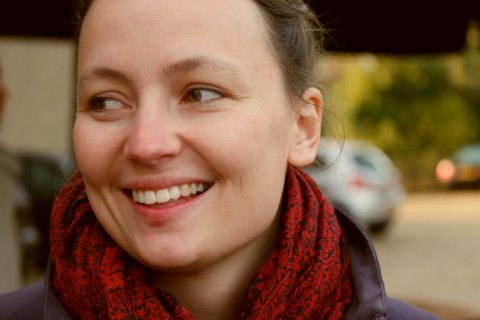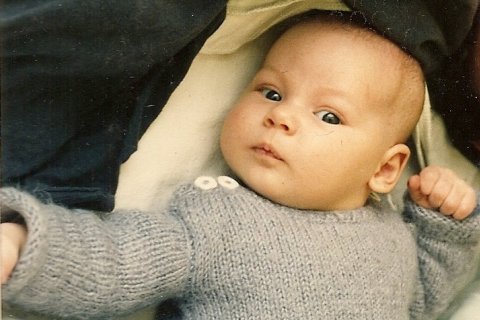Programme Coordinator Tessel Boerma
Dr Tessel Boerma is Programme Coordinator for the theme The first 1001 days of a child’s life. She discovered her interest in linguistics and language development while attending University College Utrecht: "Language has an enormous impact on people and their lives; it shapes and connects us." In her role as coordinator, Boerma also connects things: science and practice, research and social partners, and scientists from different disciplines (who don’t always speak a common language).

During her doctoral research project at the Faculty of Social and Behavioural Sciences (which she completed under the supervision of prof Elma Blom in 2017), Boerma charted the linguistic and cognitive development of monolingual and multilingual children with and without a language development disorder. "Language development disorders can be difficult to recognise in multilingual children," she explains. "The reason is that language acquisition problems can be the result of insufficient exposure to a given language, a hereditary language develop disorder, or both." Boerma conducted research into three instruments aimed at facilitating the identification of language development disorders among multilingual children.
Science and practice
At the moment, Boerma is continuing her research into language acquisition in various clinical populations and has also been appointed Programme Coordinator for this theme. She not only applies her organisational qualities to the role, but she also contributes on the basis of her own experience: "I am very knowledgeable when it comes to children whose language development is hindered by all kinds of challenging situations, or by congenital or environmental factors."
As coordinator, she will be responsible for providing supervision, safeguarding the schedule and maintaining contact with social partners. "My ambition is to integrate science and practice," Boerma says. She also serves as the link between The first 1001 days of a child’s life and the broader Utrecht-based research theme Dynamics of Youth, in which scientists from all fields work together to gain a better understanding of child development.
"We have expertise on all the building blocks that make language acquisition possible."
The building blocks of language
The researchers in Boerma's team, which study child development in the first 1001 days, come from all around the university as well. "The collaboration forces you to make knowledge accessible to one another," Boerma explains. "Sometimes, you do not even speak the same language as a colleague. In the end, though, we help one another to gain a broader picture of the language development process. We have expertise on all the building blocks that make language acquisition possible: from genes to neural networks, from cognitive mechanisms to behaviour and interaction with the environment. I find Jeroen Pasterkamp’s work with cultured brain tissue really exciting!"
Boerma is fascinated by the unique nature of language. "Language is typically human. It is remarkable how quickly young children learn language, despite all its complexity. Language has an enormous impact on peoples and their lives; it shapes and connects us."
Tessel Boerma's first 1001 days

So what was Boerma herself like as a young acquirer of language? "I was an easy-going, easy-to-please kid who calmly took in the environment and tended to observe, no matter where or with whom I was. I guess you could say I started my research at an early age!"
Tessel Boerma is also a lecturer and post-doctoral researcher in the major research programme ‘Language impairment in the 22q11.2 deletion syndrome: a model for SLI?’, which is funded by an NWO grant awarded to prof. Frank Wijnen.

